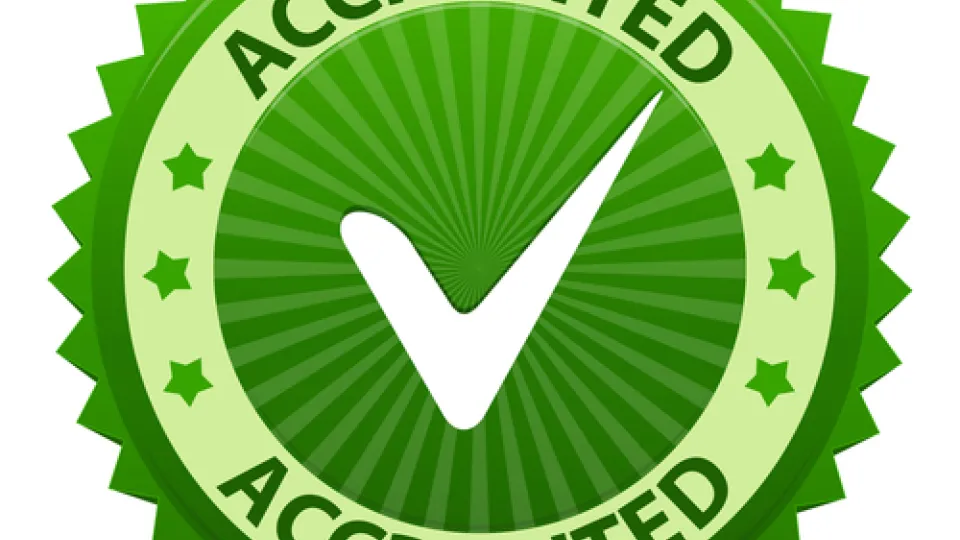
Accreditation...
It's one of those words that can be nebulous at best and intimidating at worst. Few know what it really means. But it sounds important so it must be, right?
Actually, the answer to that is absolutely. Accreditation is vital to the very being of any credible college, university or career training school. It strikes at the core of the standard of policies, procedures, curricula and training a school offers its students.
Simply put, the presence of reliable and trustworthy accreditation ensures that an educational entity is doing things the right way.
But let's hear about accredited health care programs and its importance from our own resident expert in the field - Jim Thompson, Concorde Career College's Vice President of Regulatory Affairs and Compliance.
Establishing standards
"Accreditation is meeting a certain standard that ensures the quality of your operation," Thompson said. "It also is one of the mechanisms by which our students are able to participate in federal financial aid programs. There's a lot of financial aid that our students would not be eligible to receive if we were not an accredited institution."
Thompson said accreditation comes in many forms, but what concerns Concorde most is what's known as institutional accreditation. Concorde has two organizations that accredit it at the campus level.
The Accrediting Commission on Career Schools and Colleges (ACCSC) accredits 14 of Concorde's 16 campuses nationwide. The other two campuses - Memphis and Southaven, Miss. - are accredited by the Council on Occupational Education (COE).
Thompson said each organization has a set of standards of more than 100 pages that educational institutions must meet to stay accredited.
Keeping your accreditation
"A standard accreditation cycle is typically five years," Thompson said. "So, every five years, we re-do the same report again, answering every standard that (accreditors) have and how we meet that. And then, they have a site visit... to make sure everything we say we do we really do."
"They go back and write a report on things they find that maybe didn't make sense to them or they found not in compliance. We write a follow-up report addressing any issues noted. And then, it goes to the board for a vote on re-accreditation."
Thompson said, "when all is said and done, the report can be up to 2,000 pages, including documentation, course catalogs, every syllabus for every course, marketing materials and so on. A lot of what determines institutional accreditation is outcomes driven."
"It helps when the campus is on top of it and doesn't wait until the last minute," Thompson said. "If you're collecting data over five years... you want to have that data collected on an ongoing basis."
Just the beginning
Not only does Concorde and its peers have to work to seek institutional accreditation with agencies like ACCSC and COE, but every campus must be approved by its state department of education (including, in a couple instances of border institutions like Kansas City and Memphis, two state DOEs), and many of the 20-plus programs Concorde offers must achieve programmatic accreditation as well.
"We have 83 evaluation reports to write on these programs," Thompson said. "And, we have 83 site visits coming periodically in those programs."
"It's a very highly-regulated field. We have to answer to an awful lot of different people. It keeps me pretty busy."
It's a lot of work, to be sure, for an institution such as Concorde to maintain accreditation for all its programs, but as Thompson puts it, "it's a stamp of quality," an assurance that you're getting an education that meets the highest standards set forth by the U.S. Department of Education.
Now there's nothing nebulous or intimidating about that.
Take The Next Step Towards a Brighter Future
We have a Concorde representative ready to talk about what matters most to you. Get answers about start dates, curriculum, financial aid, scholarships and more!




